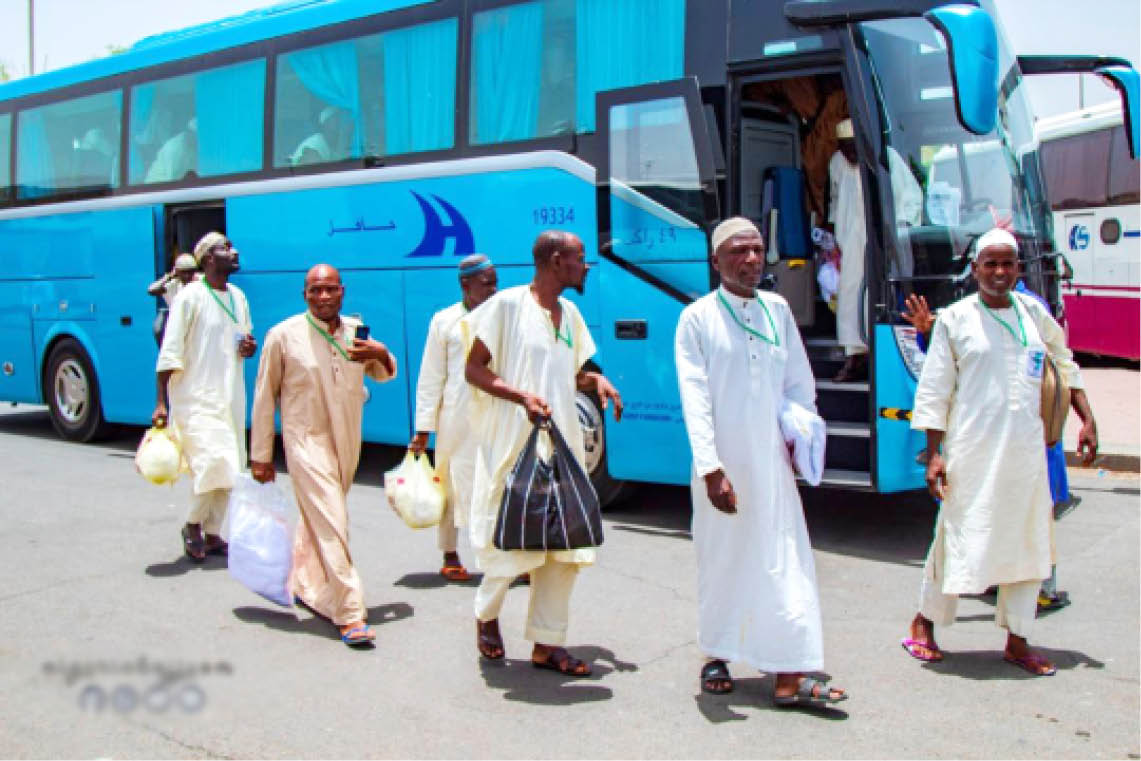As you board the plane to Makkah (1)
Brethren, the news we expect to hear of from Hajjis and Hajjas as they board the airplane on their way to one of the holiest sites in Muslim weltanschauung, (the Prophet’s Mosque in Madinah), is a salutary one. The news that Nigeria and Nigerians deserve particularly during this season of change is that of my […]

FILE PHOTO
Brethren, the news we expect to hear of from Hajjis and Hajjas as they board the airplane on their way to one of the holiest sites in Muslim weltanschauung, (the Prophet’s Mosque in Madinah), is a salutary one. The news that Nigeria and Nigerians deserve particularly during this season of change is that of my compatriots who comport themselves in the most noble and honourable way. It is our expectation that pilgrims from this country would abide by the rules governing the Hajj exercise: in hajj, there should be no disputations; on hajj there should be no fornication or adultery. While on hajj there should be no flirtations, no act of indecency particularly under any garb. Every pilgrim is expected to show fidelity and respect to the laws which hold the Saudi society together. The legal foundations of the Saudi society, bear this in mind my brother, are largely premised on the irreducible instruments enshrined in the Islamic law. There you have a law which recognizes neither status nor race. Within the judiciary in Saudi Arabia, there are no Senior Advocates be they that of falsehood or righteousness. Once you run afoul of the law, particularly the heinous ones such as drug trafficking in hard drugs or robbery, you already have an appointment with the hangman.
Dear Brother, you would agree with me, particularly if you have had the opportunity of making this journey before, that unlike visits to other countries in the world, be it in the “East” or the “West”, each time a Muslim boards the plane on the way to Saudi Arabia, she experiences an inexplicable excitement. He feels he is embarking on a journey to the source, the origin, the fountain. To embark on a journey to Saudi Arabia for Hajj therefore is to be prepared to experience the past in the present; to see sights and images of Islamic history, to become a witness to how ‘yesterday’ came to structure our ‘today’. This is probably the reason the Almighty says going on hajj is obligation humanity owes to Him (Q2: 196). Thus I propose that he, who dies as a Muslim without visiting the holy sanctuary in Madinah particularly when he has the means to do so and for noble reasons, dies as an invalid; that is spiritually.
Brethren, the last time I made that journey was probably the first time I would travel in company of “those who matter”- ordinary Nigerians, young and old, who had never ridden in an airplane before. It was probably the first time I would be a co-passenger with men and women majority of whom had moderate ambition; those who bother less about terrestrial mansions and focus more on eternal redemption. They were Muslims who had prayed for months and probably years, to witness that particular day. Before heading to the tarmac, supplications were made to the Almighty at the hajj camp. We supplicated: may this journey not be the last one for us all. Thereafter, we all filed out on a straight line. We all took our turn in order to take our seats in the plane. Moments thereafter, we were all airborne on the road, rather in the skies, toward Madinah.
Brethren, soon after the plane was brought by the Almighty to the recommended altitude, all the pilgrims relapsed into some revelry. There was excitement everywhere. The pilgrims were all happy, one with another. I contemplated their faces: I saw young faces in the winter of life; I saw faces in the summer of existence. I beheld wrinkled faces which were full of stories; stories of life; untold stories. Soon, another prayer was said for journey mercies. This was followed by a short sermon in which the pilgrims were reminded that not all travelers usually reach their destinations; that life is a journey of departures and arrivals; that life is a journey in which not all departures usually culminate in arrivals.
Brethren, since it was their first time, most of the pilgrims could not but wonder about the ‘miracle’ of the airplane. Peeping through the window of the aircraft, one of them whispered querulously into my ear: “My brother, are we moving on or we are rooted to the same spot? Are we above the heavens or in-between two skies? Are we moving northwards or eastward? Isn’t this a miracle?”
